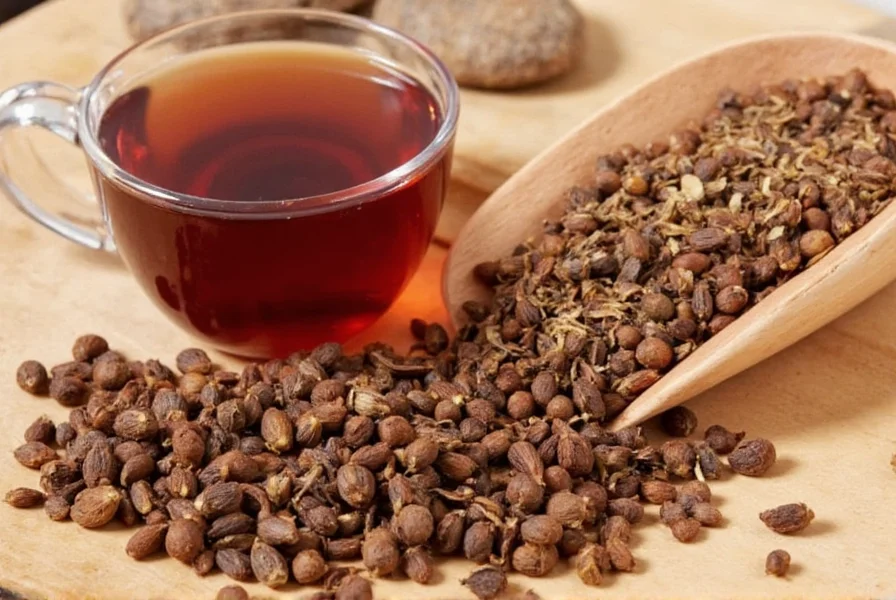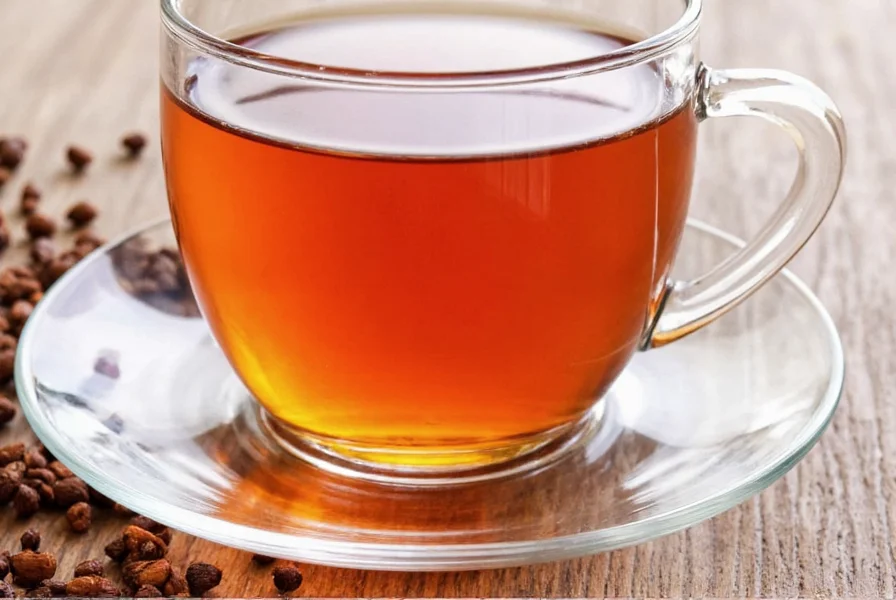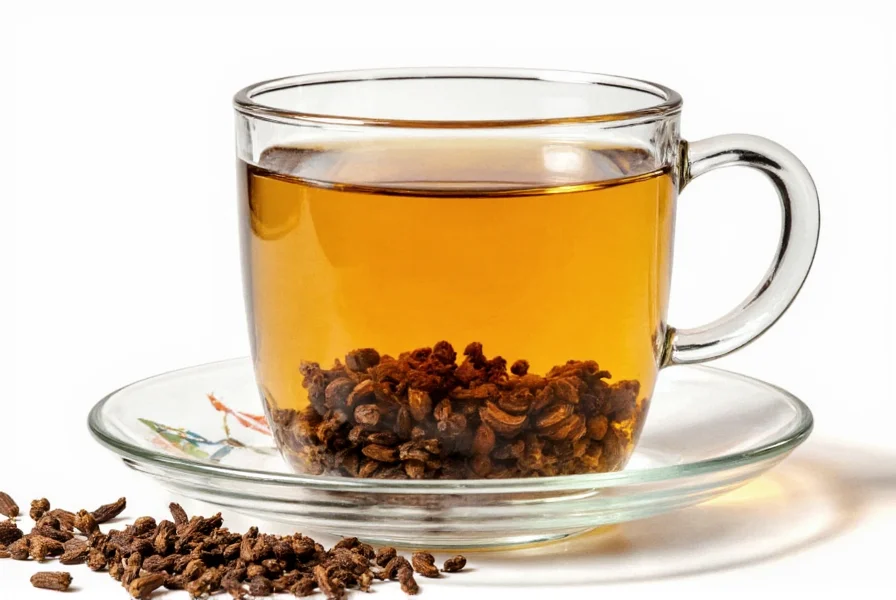Clove tea has been used for centuries in traditional medicine systems across Asia and the Middle East. This aromatic herbal infusion delivers distinctive flavor and potential health advantages backed by emerging scientific research. Unlike true teas from Camellia sinensis, clove tea qualifies as a tisane or herbal infusion, making it naturally caffeine-free.
What Exactly Is Clove Tea?
Clove tea originates from the dried flower buds of the clove tree, an evergreen native to Indonesia's Maluku Islands. These small, nail-shaped buds contain 15-20% essential oil, primarily composed of eugenol (70-90%), which gives clove tea its characteristic spicy aroma and therapeutic properties. When prepared correctly, clove tea produces a warm, slightly sweet beverage with complex flavor notes.

Nutritional Composition of Clove Tea
While clove tea contains minimal calories, its value lies in bioactive compounds:
| Compound | Concentration | Primary Benefits |
|---|---|---|
| Eugenol | 70-90% of essential oil | Anti-inflammatory, analgesic, antimicrobial |
| Vitamin C | Moderate levels | Immune support, antioxidant |
| Manganese | Significant amounts | Bone health, metabolism |
| Flavonoids | Various types | Antioxidant protection |
Evidence-Based Health Benefits of Clove Tea
Scientific research supports several potential health benefits associated with moderate clove tea consumption:
Oral Health Improvement
Multiple studies confirm clove's effectiveness against oral pathogens. Research published in the Journal of Indian Society of Pedodontics and Preventive Dentistry demonstrated that clove extract significantly reduced dental plaque and gingivitis. The eugenol content provides natural analgesic properties, making clove tea a traditional remedy for toothaches and sore gums.
Digestive Support
Clove tea benefits for digestion include stimulating enzyme production and reducing gastrointestinal discomfort. A 2021 study in Phytotherapy Research found that eugenol enhances gastric emptying and reduces intestinal spasms. Many users report relief from bloating and gas after consuming clove tea following meals.
Blood Sugar Regulation
Promising research suggests clove compounds may improve insulin sensitivity. A laboratory study in the Journal of Nutrition and Metabolism showed that clove extract increased glucose uptake in muscle cells by up to 47%. While human trials are limited, these findings indicate potential benefits for metabolic health.
Potential Risks and Side Effects
Despite its benefits, clove tea side effects require consideration:
- Oral tissue irritation: Concentrated clove oil can cause mucosal damage; always dilute properly
- Bleeding risk: Eugenol may inhibit platelet aggregation, potentially problematic before surgery
- Liver concerns: Excessive consumption might affect liver function in sensitive individuals
- Pregnancy considerations: Limited safety data; consult healthcare provider before regular consumption
The European Medicines Agency recommends maximum daily eugenol intake of 2.5 mg per kilogram of body weight. For most adults, this translates to no more than 1-2 cups of properly prepared clove tea daily.

How to Make Clove Tea Properly
Follow this simple preparation method for optimal flavor and benefits:
- Use 3-4 whole dried cloves per 8 ounces of water
- Bring water to just below boiling (195°F/90°C)
- Add cloves and steep for 5-7 minutes (longer steeping increases potency but may cause bitterness)
- Strain and optionally add lemon, honey, or cinnamon
- Consume within 30 minutes for maximum benefit
For those seeking how to make clove tea at home with enhanced benefits, consider combining with ginger or cinnamon. This clove tea recipe variation provides complementary health properties while balancing the strong clove flavor.
When to Consult a Healthcare Provider
While generally safe in moderation, consult a medical professional before regular consumption if you:
- Take blood thinners or diabetes medications
- Have liver conditions
- Are pregnant or breastfeeding
- Have upcoming surgery scheduled
- Experience persistent digestive issues
Healthcare providers can help determine appropriate consumption levels based on individual health status and potential medication interactions.
Conclusion
Clove tea offers a flavorful way to potentially support oral health, digestion, and metabolic function when consumed responsibly. The key to maximizing clove tea benefits while minimizing risks lies in proper preparation and moderate consumption. As with any herbal remedy, understanding both the advantages and limitations helps users make informed decisions about incorporating clove tea into their wellness routines.
Frequently Asked Questions
Can clove tea help with sore throat relief?
Yes, clove tea's antimicrobial and analgesic properties can provide temporary sore throat relief. The eugenol content numbs throat tissues while fighting bacteria. For best results, sip warm clove tea slowly or use it as a gargle, but consult a doctor for persistent symptoms.
Is clove tea safe during pregnancy?
Limited research exists on clove tea during pregnancy. While occasional consumption in moderate amounts is likely safe, pregnant women should consult their healthcare provider before regular use due to potential effects on uterine stimulation and blood clotting.
How does clove tea compare to regular black tea?
Clove tea differs significantly from regular tea as it's an herbal tisane rather than a true tea. Unlike black tea, clove tea contains no caffeine but offers different bioactive compounds. While black tea provides theaflavins and thearubigins, clove tea delivers eugenol and other phenolic compounds with distinct health properties.
Can clove tea lower blood sugar levels?
Preliminary research suggests compounds in clove tea may improve insulin sensitivity and glucose metabolism. However, human studies are limited, and clove tea should not replace diabetes medication. Those with blood sugar concerns should monitor levels closely and consult their healthcare provider.
What's the best time to drink clove tea?
The optimal time depends on your goals: after meals for digestion support, in the evening for relaxation (as it's caffeine-free), or at first signs of cold symptoms. Avoid drinking clove tea on an empty stomach as it may cause mild gastric irritation in some individuals.











 浙公网安备
33010002000092号
浙公网安备
33010002000092号 浙B2-20120091-4
浙B2-20120091-4